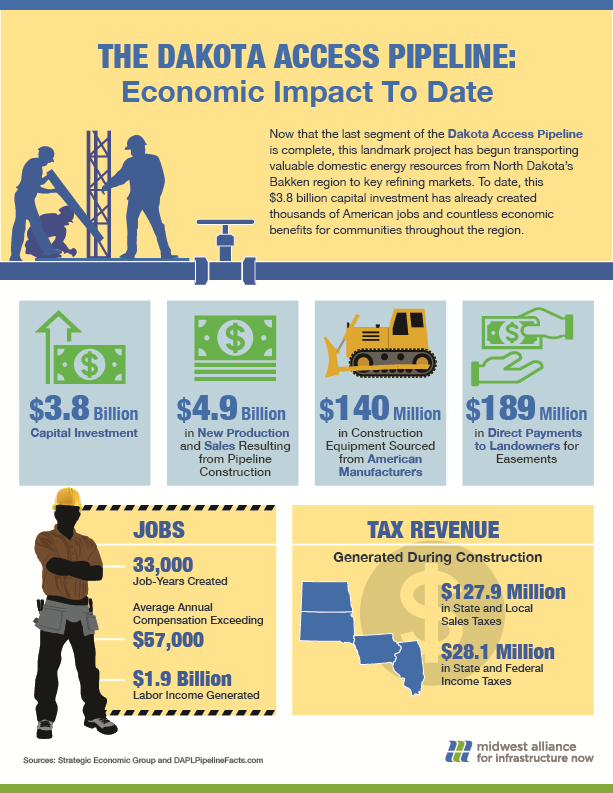Now that construction of the 1,172-mile Dakota Access Pipeline is complete, it’s only a matter of time before the line begins transporting crude oil from North Dakota’s Bakken region to key refining markets.
First announced in 2014, this $3.78 billion infrastructure project has already resulted in countless economic and fiscal benefits for communities throughout the Midwest. Whether it was as big as a multi-million dollar purchase from an American heavy equipment manufacturer like John Deere or a record setting season for a family-owned ice cream store, it is clear that this project made a difference in the lives of many.
“The Dakota Access Pipeline has already meant jobs for thousands of Midwesterners and billions of dollars in economic activity,” said MAIN Coalition spokesman Craig Stevens. “Siting, constructing, and operating this pipeline is a testament to the expertise and dedication of community leaders, government officials, engineers, and laborers – all working together to develop and safely transport our nation’s energy resources. Now that the pipeline is operational, it will help fuel our nation’s economy for decades to come.

“We are hopeful that President Trump continues to alleviate regulatory hurdles and uncertainty, allowing our nation’s infrastructure to grow and our manufacturing and agricultural sectors to flourish,” Stevens added.
Environmentally sensitive, economically beneficial, and vital to our nation’s energy future – projects like the Dakota Access Pipeline are critical to creating jobs and strengthening our economy.
*All data was sourced from either the Strategic Economics Group or DAPLPipelineFacts.com.